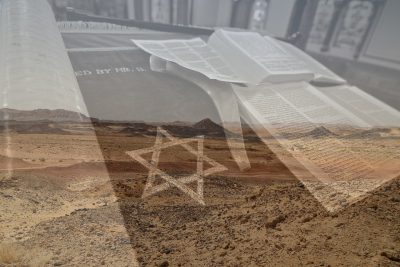
Israel is Blessed by God
By/ Sam Nan
Unveiling Narratives in the Middle East
Within the tumultuous landscape of the Middle East, stakeholders grapple with Israel amid historical grievances and religious interpretations.
Examining Complex Realities
However, closer scrutiny reveals narrative facts shaped by both biblical teachings and contemporary geopolitical dynamics.
A Glimpse into Promises of Peace
Isaiah 66:18’s words, “Violence shall no more be heard in thy land…” hint at a promise of peace and prosperity for Israel.
Challenges Hindering Fulfillment
Yet, entrenched animosities and misconceptions impede the fulfillment of this prophecy.
Pervasive Hostility
Within Arab communities, a pervasive sentiment of hostility towards Israel often stems from religious rhetoric and political agendas.
Acknowledging Enmity
Surah Al-Ma’idah 82 in the Qur’an acknowledges this enmity, highlighting Jews’ historical opposition to believers.
Sowing Seeds of Prejudice
Regrettably, this portrayal sows seeds of prejudice and intolerance among Muslims, perpetuating a cycle of distrust and animosity.
Contributions Beyond Borders
Israel’s significant contributions across various fields positively impact the world, transcending boundaries.
Technological Innovation
Israel’s thriving technology sector earns it the moniker “Startup Nation.”
Medical Advancements
Israeli scientists and researchers make notable medical contributions.
Humanitarian Aid
Despite its size, Israel provides significant humanitarian aid globally.
Cultural and Academic Contributions
Israel enriches the world’s cultural landscape through literature, music, art, and cuisine.
Pursuit of Peace
Israel actively pursues peace agreements and diplomatic initiatives despite regional challenges.
Challenging Preconceptions
Constructive dialogue and mutual respect are essential to bridge divides.
Revisiting Historical Claims
The contentious issue of Palestine’s identity and historical claims challenges prevailing narratives, urging reasoned reflection.
Divine Injunction
Nan invokes a biblical verse, emphasizing the divine mandate to bless Israel, advocating for understanding and embracing Israel as a partner for peace and progress in the region.
Exploring Historical Contexts
The term “Promised Land” holds religious and historical significance for both Jews and Christians, as it refers to the land that God promised to the descendants of Abraham, particularly to the Israelites, according to religious texts such as the Hebrew Bible (Old Testament) and the Christian Bible.
Rich Historical Heritage
In the Hebrew Bible, the Land of Israel frequently appears as the “Promised Land” or the “Land flowing with milk and honey.”
Historical Perspectives
From a historical standpoint, various peoples, including Canaanites, Israelites, Philistines, and others, have inhabited the region known as Palestine for thousands of years.
Emergence of Palestine
The modern concept of Palestine arose during the late Ottoman period and persisted during the British Mandate era (1920-1948).
Complexities of Identity
During this period, Palestine was home to diverse communities, including Arab Muslims, Arab Christians, and Jews.
Central to Jewish Identity
The concept of Palestine as the “Promised Land” for Jews has been pivotal to Jewish identity and religious belief for centuries.
Zionist Movement
Zionism, a political and ideological movement that emerged in the late 19th century, aimed to establish a Jewish homeland in Palestine, inspired by the historical and religious ties of Jews to the land.
Partition Plan and Conflicts
In 1947, the United Nations proposed a partition plan for Palestine, suggesting the establishment of separate Jewish and Arab states.
Challenges to Resolution
The issue of the “Promised Land” and the historical and religious claims to the region remain contentious and central to the ongoing Israeli-Palestinian conflict, which involves complex political, territorial, and religious dimensions.
Rational Examination
Regarding the phrases “Palestine is Arab” and “Jerusalem is Islamic,” the solution to this issue requires the application of reason and logical thinking.
Questioning Origins
The question arises: Who are the original inhabitants of Palestine? Are they the Arabs, or another people?
Language and Heritage
Before Islam entered Palestine, various languages were used in the region according to the civilizations and peoples that inhabited it.
Reevaluating Perceptions
It’s crucial to recognize that the word “Palestine” does not originate from Arab or Middle Eastern languages.
Narrative Reconstruction
The Palestinians, who lived in this region hundreds of years before Islam, cannot claim ownership of the land; they, too, are intruders.
Embracing Change
Why don’t we seek to win the affection of the Israelis and view them not as enemies, but rather as loved ones? Why do we not discard the old destructive ideas that were implanted in the souls of the Arabs, portraying Jews as enemies?
Appeal to Divine Guidance
I hold fast to a verse in the Bible: whoever blesses Israel will be blessed by God, and whoever curses Israel will be cursed by God.



















